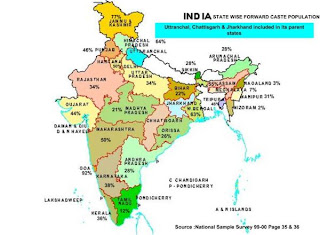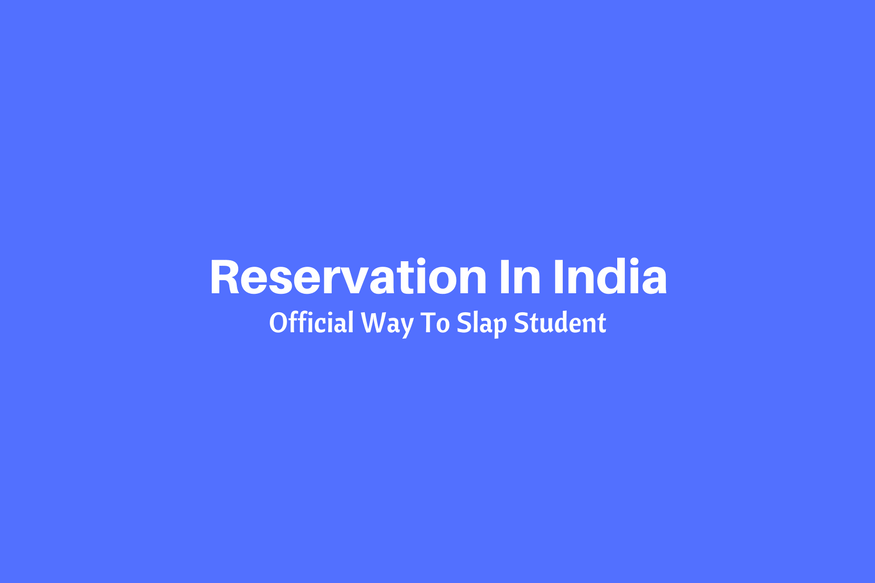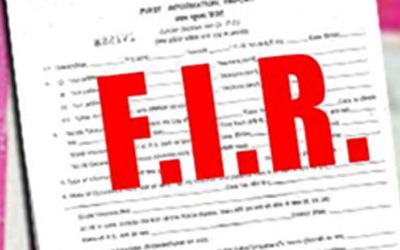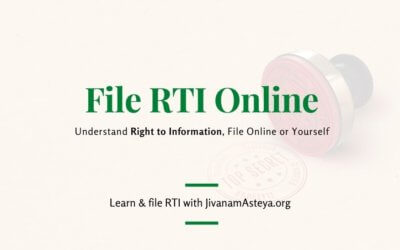Reservation In India : Official Way To Slap Student


Some reservations are also made for:
-
- Gender (around 30% of seats are reserved for females in many institutions)
- Sons/Daughters/Grandsons/Grand daughters of Freedom Fighters
- Physically handicapped
- Sports personalities
- Non-Resident Indians (NRIs)
- Candidates sponsored by various organizations
- Those who have served in the armed forces (Ex-Servicemen quota) in jobs
- Dependants of armed forces personnel killed in action
- Repatriates
- Those born from inter-caste marriages
- Widows and deserted women
Main articles: 2006 Indian anti-reservation protests and Reservation policy in Indian Institutes of Technology
- December 2005- April 2006
- 93rd Constitutional amendment brought to make court judgment on Reservations to Private educational institutions as invalid


- May 2006 -August 2006
- Anti Reservation Protests intensified in all parts of India. Pro reservationists claim protests were intensified by media bias.”[14] Tamil Nadu stayed calm. This is attributed to low percentage of Forwarding castes in Tamilnadu (13%) as against 36% in India. Due to high reservations for decades their representation in various spheres of life is much less than their population. (See Tamilnadu Section). Those who opposed reservations in Tamilnadu faced violent attacks.
- Alternative systems of Affirmative Action proposed by academics Prof. Purushottam Agrawal of the Jawaharlal Nehru University in the form of the Multiple Index Related Affirmative Action (MIRAA) – and by Prof. Satish Deshpande and Dr. Yogendra Yadav of the Centre for the Study of Developing Societies.
- Dr. Sam Pitroda, Chairperson of the National Knowledge Commission [an advisory body instituted by Prime Minister Manmohan Singh] came out in opposition to the proposed scheme to extend caste-based reservations to OBCs in institutes of Higher Education.
- Dr. Pratab Bhanu Mehta, member-convener of the National Knowledge Commission resigns from his post in protest against the policy of reservations, Dr. Mehta’s open letter of resignation.
- Indian Prime Minister appoints Oversight committee headed by a former chief minister of Karnataka M. Veerappa Moily to suggest ways for implementation of reservations for Other Backward Classes and to suggest measures for increasing seats in educational institutions.
- Oversight committee submits an interim report and suggests phased implementation of reservations in central educational institutions for other backward classes.
- OBC reservation bill introduced in the Lok Sabha and referred to standing committee. It has not excluded creamy layer (rich and affluent amongst the other backward classes) from enjoying reservation benefits per supreme court judgment.
- Supreme court referred inclusion of 69% reservation in Tamilnadu in 9th schedule to 9 member bench
- September 2006 -Till Date
- Supreme court advised Tamilnadu to exclude creamy layer among Backward classes from enjoying reservation facilities.
- Supreme court observed that central Government is trying to introduce quota without adequate data.
- Oversight committee submits a final report.
- Supreme court upheld constitutional amendment for providing reservations in promotions for Scheduled Castes and Tribes. It reiterated 50% limit and exclusion of Creamy layer from enjoying reservation benefits.
- The parliamentary standing committee recommended a preference for non-creamy layer (Poor among backward) among backward classes from enjoying reservation benefits and comprehensive population survey to identify real backward people.
Sachar committee submitted its report regarding backwardness of Indian Muslims. It made many recommendations for uplifting Indian Muslims. It indicated that current enrollment in educational institutions of non-Muslim OBC’s is almost equal to/close to their population. It also recommended an alternative method for identifying real needy people.
Political parties & central government paint a false picture of inequality between Forwarding Castes and Other Backward classes without referring its own survey results. National surveys results indicate that Other backward classes are comparable to Forwarding Castes in many parameters.
Allocating quotas is a form of discrimination which is contrary to the right to equality.
There is great confusion in the “pro-reservation camp”. While they clamor for 33% reservation for women in parliament and state legislatures [and do not accept caste quotas as part of women’s quotas], they do not want special consideration for women in quotas in higher education. This is an implicit acceptance of the fact that there are multiple factors of exclusion and discrimination at work in society.
There is fear that reservation once introduced will never be withdrawn even if there is a proof for the upliftment of Backward classes, due to political issues. For example, in Tamil Nadu, forward castes were able to secure only 3% of total seats (and 9% in Open Competition) in professional institutions at an Undergraduate level as against their population percentage of 13%.[21]. This is a clear case of reverse discrimination.
In education & our country, reservation means to protect and increase standard and status of minorities and other backward castes.
When India got independent, most of the people the f country was suffering from discrimination of caste, religion, social status so that they would in job, business and education so on.
So leaders come to a mutual agreement to implement actions for that all person/caste who were a victim of discrimination so though they had necessary skills to be successful, were not given the opportunity.
So reservation in education implemented to raise standard, voice, and status of backward caste since 1951. But now point is that- it was a remedy to disease. Today we can see that things are appropriate and balanced as we have many IAS, IPS, Business man, Employee in government organization, Student, politician in society who are benefited and have power as they were benefited of reservation scheme.
Now, back caste is no more back. But time by time intelligent and corrupted politician realize that if they would get a support of so called back caste they would easily be won election so things were changed on this situation to gain personal benefits.
To get vote (personal aspiration, greed) leaders discuss increment of a percentage of reservation in education which would have been the right thing between 1951 to 1990 but now things have been changed.
Everyone should be given equal opportunity based on their original skill without special benefit or discrimination.
If reservation would raise, it would be like what politician call, backward caste would turn in prosperous and what they call majority would lose its voice so after 50 to 70 years politician would come with a new reservation for the people who were neglected during reservation of so called back caste.
Today all caste and society are improved, government should realize that as they are given unnecessary opportunity to unskilled or lower skill person in compare to skilled people, eventually it is a loss of our country’s intellectually property PM of India Dr.Manmohan Singh understand it very well that we do not need reservation anymore but he stuck between dirty politics.
Reservation was implemented as an attempt to bring minor and back caste people of India in appropriate social and economic power and now that aspiration has already been accomplished so why we still want to continue reservation??
It is just a political benefit, as back cast peoples vote is very important to win an election that no one(politician whether honest or corrupted) want to neglect them.
Reservation, now, is not a scheme for back caste people but it is one of the processes to win the election, everyone(intelligent politician and business tycoon) know it very well but they have not strengthen to abolish it.
Business tycoon is more likely to be dependent on certain things on ruling party so they would not wish that party would defeat in an election.before we make any comments and implementation we should check all that reasons and conditions.
why was reservation implemented in India? what was the aim of reservation? Did we achieve that goal? If yes, so why we have still this scheme on/running?
As we have a budget every year in February due to changing requirement and so on each year we need to think same point and concept on the reservation.
If we really want to do good for back caste society why don’t we think about increase of employment, elementary education development, social and cultural awareness, reservation of women in politics, education on enterprise and ethics so that people themselves would better know how to grow and to succeed in the worst condition then we would not require reservation
Now if we continue reservation on such a high percentage unskilled people would get chance to enter higher Institute and eventually they would not get appropriate future and reputation of educational institute, as well as nation, would be begin to ruin and true intelligent property would go out of country and would not reach the right stage due to cut down their good skills with reservation.
Source: Wikipedia.org, Other anti-reservation material, and research





0 Comments